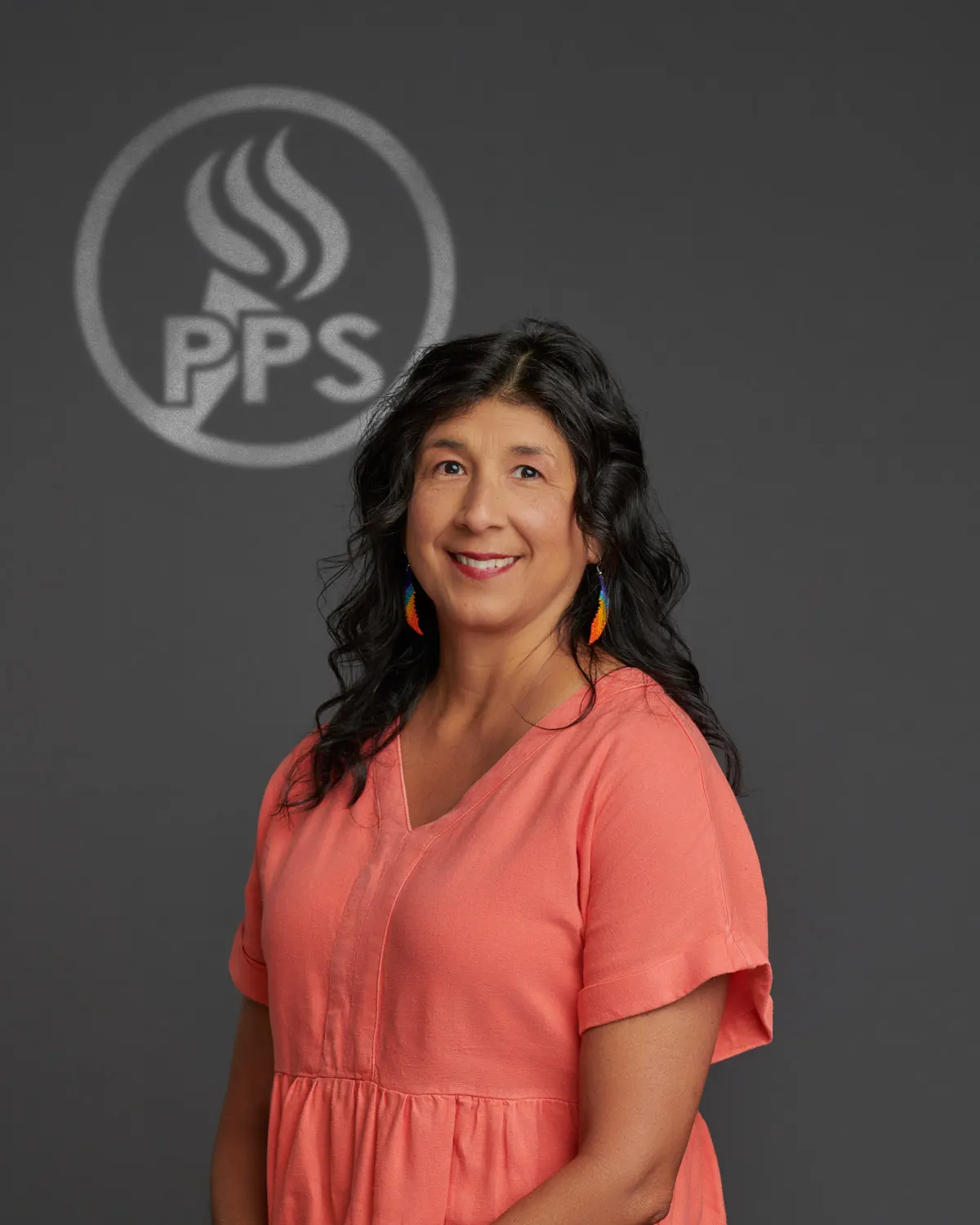When Zulema Naegele thinks of her childhood, she says being an educator was far from her mind. The eldest of five children raised in Mesa, Arizona, she never dreamed that one day she would teach and then become a high school principal.
“I’m the oldest of 30+ cousins and was always the one to line them up and help them all hit the piñata,” she says. “But I didn’t want to be their teacher!”
Her Spanish-speaking parents didn’t have a lot of formal education; her mother left school before emigrating from Mexico, and her father dropped out of high school—so Zulema found herself playing the role of family translator. Perhaps that is why she “really wanted to learn languages, travel, experience other cultures and become an ambassador.”
Her parents were strong, resilient people, proud when she went on to earn her bachelor of arts, with a major in Spanish and minor in French, from Arizona State University.
At Red Mountain High School, where she had been part of the mock trial program, her government teacher Mr. Bratspir pushed her to apply to competitive universities outside the state.
“He probably knew more about me than I knew about myself,” she says. “I was sure I couldn’t do it. Even applying to Arizona State was a big deal. He helped me get a scholarship there.”
B.A. in hand, she met some principal recruiters who were looking for bilingual teachers and Zulema tried it out before developing her real master plan. “It wasn’t until I got into the classroom that I realized this was what I was meant to do.” She taught for nearly 10 years at Butler Elementary and Pueblo Del Sol Middle School and had many Latinx students. She says, “I have a very strong Chicana identity.”
Zulema has an equally strong feminist identity, so she laughs when she recalls meeting Alfonso Ramirez, a math teacher: “I never thought I would marry a Chicano, but the machismo I worried about never materialized with him.”
They married in 2004, the same year she turned to administrative work, placing students of color in business and industry, and advising and coaching them.
By then, Zulema had a Master of Education degree in bilingual and multicultural education and English as a second language. She became a mother as well, of Tonantzin and Xitlali, both named after Aztec deities.
Soon, the family resettled in Portland, Oregon, where she began studying for a doctorate in education in leadership at the University of Portland. She is today a member of the Portland Association of Public School Administrators, AFSA Local 141: “I would say that from the beginning I had my eye on becoming a principal. I’m an Aquarian and love to grow and be challenged, but I wasn’t in a rush.”
Her first VP position was at De La Salle North Catholic High School in Portland, where among other responsibilities she provided consultation and delivered presentations on race, culture, inclusion and equity. She also worked on partner internships that served the large population of students of color.
Two years later, she became VP of Roosevelt High School, part of Portland Public Schools. Her management and academic leadership responsibilities were plentiful, but she also found time to advocate for families of color whose first language might not be English.
Zulema’s major focus was and still is ethnic studies. She says, “It is founded in critical race theory, which many people do not understand. Teaching history and social studies through a racial lens allows students to go deeper and examine ‘who’s not in the room’ and ‘who does not have a seat at the table,’ and why.” She says she hopes that more educators turn to this emphasis elsewhere.
In 2023, Zulema was appointed principal of Franklin High School in Portland. “I realized it would be 24/7 and I was hesitant, but once I knew I had Alfonso’s full support, I said OK.”
Franklin has 1,800 students and 200 staff members. Fifty percent of the students are of color, with a large population of newcomers. “My students are so sweet and friendly,” she says. “They all smiled at me right away and made me feel welcomed.”
There is no shortage of camaraderie. Zulema has developed strong relationships with principals throughout the district and with her own administrators. She says, “The staff here is so committed and not afraid to have different conversations about race.”
Franklin has had some challenging years requiring special attention around safety and security. While student academic growth is Zulema’s first priority, she also works regularly with violence prevention teams from the district.
“We’ve had student deaths through gun violence and suicide,” she says. “Mental health is also a challenge for some of our students. There’s cyberbullying that didn’t happen in the past, and many concerning things are happening online,” she continues. “Cell phones are just super influential, so we will soon have a policy where students will put their phones in a holder inside the classroom. Oh, yes, I know, it will be hard.”
But she knows adolescents well. Her own children are now in their later teens. While Zulema enjoys some solo pursuits like yoga and hiking, she recently took her kids to Hawaii along with her mother and mother-in-law. Those kids are leaving the nest.
Tonantzin has just headed to Oberlin College’s famed conservatory to study vocal music. This year, Xitlali is embarking on the college admissions process with a focus on dance programs, perhaps at Columbia University. “We are all art lovers,” Zulema says. “Alfonso plays the guitar, and I love all the arts.”
However, her chances of suffering from empty nest syndrome are probably less than for most parents. Her greatest joy is to work with her Black, Indigenous, Latinx and all other students, “to listen to them and learn how to better support them and amplify their voices.”

